『武士道 Bushido 』-新渡戸稲造(Inazo Nitobé)-
Chapter 07
(Veracity or Truthfulness「誠」なぜ武士に二言はないのか)
Bushido, the Soul of Japan by Inazo Nitobe
[Book]
[reading]
・Chapter TOP 新渡戸稲造(Inazo Nitobé)TOP
・Chapter 00(Prefaces 序文)
・Chapter 01(Bushido as an Ethical System 武士道とは)
・Chapter 02(Sources of Bushido 武士道の源)
・Chapter 03(Rectitude or Justice 「義」)
・Chapter 04(Courage, the Spirit of Daring and Bearing 「勇」)
・Chapter 05(Benevolence, the Feeling of Distress 「仁」)
・Chapter 06(Politeness 「礼」)
・Chapter 07(Veracity or Truthfulness 「誠」)
・Chapter 08(Honor 「名誉」)
・Chapter 09(The Duty of Loyalty 「忠義」)
・Chapter 10(Education and Training of a Samurai 武士は何を学びどう己を磨いたか)
・Chapter 11(Self-Control 人に勝ち己に勝つために)
・Chapter 12(The Institutions of Suicide and Redress 「切腹」)
・Chapter 13(The Sword, the Soul of the Samurai 「刀」)
・Chapter 14(The Training and Position of Woman 武士道が求めた女性の理想像)
・Chapter 15(The Influence of Bushido 「大和魂」)
・Chapter 16(Is Bushido Still Alive? 武士道は蘇るか)
・Chapter 17(The Future of Bushido 武士道から何を学ぶか)
・[修養]、
・[自警録]
without which Politeness is a farce and a show. "Propriety carried beyond right bounds," says Masamuné, "becomes a lie." An ancient poet has outdone Polonius in the advice he gives: "To thyself be faithful: if in thy heart thou strayest not from truth, without prayer of thine the Gods will keep thee whole." The apotheosis of Sincerity to which Tsu-tsu gives expression in the Doctrine of the Mean, attributes to it transcendental powers, almost identifying them with the Divine. "Sincerity is the end and the beginning of all things; without Sincerity there would be nothing." He then dwells with eloquence on its far-reaching and long enduring nature, its power to produce changes without movement and by its mere presence to accomplish its purpose without effort. From the Chinese ideogram for Sincerity, which is a combination of "Word" and "Perfect," one is tempted to draw a parallel between it and the Neo-Platonic doctrine of Logos—to such height does the sage soar in his unwonted mystic flight.
Lying or equivocation were deemed equally cowardly. The bushi held that his high social position demanded a loftier standard of veracity than that of the tradesman and peasant. Bushi no ichi-gon—the word of a samurai or in exact German equivalent ein Ritterwort—was sufficient guaranty of the truthfulness of an assertion. His word carried such weight with it that promises were generally made and fulfilled without a written pledge, which would have been deemed quite beneath his dignity. Many thrilling anecdotes were told of those who atoned by death for ni-gon, a double tongue.
The regard for veracity was so high that, unlike the generality of Christians who persistently violate the plain commands of the Teacher not to swear, the best of samurai looked upon an oath as derogatory to their honor. I am well aware that they did swear by different deities or upon their swords; but never has swearing degenerated into wanton form and irreverent interjection. To emphasize our words a practice of literally sealing with blood was sometimes resorted to. For the explanation of such a practice, I need only refer my readers to Goethe's Faust.
A recent American writer is responsible for this statement, that if you ask an ordinary Japanese which is better, to tell a falsehood or be impolite, he will not hesitate to answer "to tell a falsehood!" Dr. Peery is partly right and partly wrong; right in that an ordinary Japanese, even a samurai, may answer in the way ascribed to him, but wrong in attributing too much weight to the term he translates "falsehood." This word (in Japanese uso) is employed to denote anything which is not a truth (makoto) or fact (honto). Lowell tells us that Wordsworth could not distinguish between truth and fact, and an ordinary Japanese is in this respect as good as Wordsworth. Ask a Japanese, or even an American of any refinement, to tell you whether he dislikes you or whether he is sick at his stomach, and he will not hesitate long to tell falsehoods and answer, "I like you much," or, "I am quite well, thank you." To sacrifice truth merely for the sake of politeness was regarded as an "empty form" (kyo-rei) and "deception by sweet words," and was never justified.
Peery, The Gist of Japan, p. 86.
I own I am speaking now of the Bushido idea of veracity; but it may not be amiss to devote a few words to our commercial integrity, of which I have heard much complaint in foreign books and journals. A loose business morality has indeed been the worst blot on our national reputation; but before abusing it or hastily condemning the whole race for it, let us calmly study it and we shall be rewarded with consolation for the future.
Of all the great occupations of life, none was farther removed from the profession of arms than commerce. The merchant was placed lowest in the category of vocations,—the knight, the tiller of the soil, the mechanic, the merchant. The samurai derived his income from land and could even indulge, if he had a mind to, in amateur farming; but the counter and abacus were abhorred. We knew the wisdom of this social arrangement. Montesquieu has made it clear that the debarring of the nobility from mercantile pursuits was an admirable social policy, in that it prevented wealth from accumulating in the hands of the powerful. The separation of power and riches kept the distribution of the latter more nearly equable. Professor Dill, the author of "Roman Society in the Last Century of the Western Empire," has brought afresh to our mind that one cause of the decadence of the Roman Empire, was the permission given to the nobility to engage in trade, and the consequent monopoly of wealth and power by a minority of the senatorial families.
Commerce, therefore, in feudal Japan did not reach that degree of development which it would have attained under freer conditions. The obloquy attached to the calling naturally brought within its pale such as cared little for social repute. "Call one a thief and he will steal:" put a stigma on a calling and its followers adjust their morals to it, for it is natural that "the normal conscience," as Hugh Black says, "rises to the demands made on it, and easily falls to the limit of the standard expected from it." It is unnecessary to add that no business, commercial or otherwise, can be transacted without a code of morals. Our merchants of the feudal period had one among themselves, without which they could never have developed, as they did, such fundamental mercantile institutions as the guild, the bank, the bourse, insurance, checks, bills of exchange, etc.; but in their relations with people outside their vocation, the tradesmen lived too true to the reputation of their order.
This being the case, when the country was opened to foreign trade, only the most adventurous and unscrupulous rushed to the ports, while the respectable business houses declined for some time the repeated requests of the authorities to establish branch houses. Was Bushido powerless to stay the current of commercial dishonor? Let us see.
Those who are well acquainted with our history will remember that only a few years after our treaty ports were opened to foreign trade, feudalism was abolished, and when with it the samurai's fiefs were taken and bonds issued to them in compensation, they were given liberty to invest them in mercantile transactions. Now you may ask, "Why could they not bring their much boasted veracity into their new business relations and so reform the old abuses?" Those who had eyes to see could not weep enough, those who had hearts to feel could not sympathize enough, with the fate of many a noble and honest samurai who signally and irrevocably failed in his new and unfamiliar field of trade and industry, through sheer lack of shrewdness in coping with his artful plebeian rival. When we know that eighty per cent. of the business houses fail in so industrial a country as America, is it any wonder that scarcely one among a hundred samurai who went into trade could succeed in his new vocation? It will be long before it will be recognized how many fortunes were wrecked in the attempt to apply Bushido ethics to business methods; but it was soon patent to every observing mind that the ways of wealth were not the ways of honor. In what respects, then, were they different?
Of the three incentives to Veracity that Lecky enumerates, viz: the industrial, the political, and the philosophical, the first was altogether lacking in Bushido. As to the second, it could develop little in a political community under a feudal system. It is in its philosophical, and as Lecky says, in its highest aspect, that Honesty attained elevated rank in our catalogue of virtues. With all my sincere regard for the high commercial integrity of the Anglo-Saxon race, when I ask for the ultimate ground, I am told that "Honesty is the best policy," that it pays to be honest. Is not this virtue, then, its own reward? If it is followed because it brings in more cash than falsehood, I am afraid Bushido would rather indulge in lies!
If Bushido rejects a doctrine of quid pro quo rewards, the shrewder tradesman will readily accept it. Lecky has very truly remarked that Veracity owes its growth largely to commerce and manufacture; as Nietzsche puts it, "Honesty is the youngest of virtues"—in other words, it is the foster-child of industry, of modern industry. Without this mother, Veracity was like a blue-blood orphan whom only the most cultivated mind could adopt and nourish. Such minds were general among the samurai, but, for want of a more democratic and utilitarian foster-mother, the tender child failed to thrive. Industries advancing, Veracity will prove an easy, nay, a profitable, virtue to practice. Just think, as late as November 1880, Bismarck sent a circular to the professional consuls of the German Empire, warning them of "a lamentable lack of reliability with regard to German shipments inter alia, apparent both as to quality and quantity;" now-a-days we hear comparatively little of German carelessness and dishonesty in trade. In twenty years her merchants learned that in the end honesty pays. Already our merchants are finding that out. For the rest I recommend the reader to two recent writers for well-weighed judgment on this point. It is interesting to remark in this connection that integrity and honor were the surest guaranties which even a merchant debtor could present in the form of promissory notes. It was quite a usual thing to insert such clauses as these: "In default of the repayment of the sum lent to me, I shall say nothing against being ridiculed in public;" or, "In case I fail to pay you back, you may call me a fool," and the like.
Knapp, Feudal and Modern Japan, Vol. I, Ch. IV. Ransome, Japan in Transition, Ch. VIII.
Often have I wondered whether the Veracity of Bushido had any motive higher than courage. In the absence of any positive commandment against bearing false witness, lying was not condemned as sin, but simply denounced as weakness, and, as such, highly dishonorable. As a matter of fact, the idea of honesty is so intimately blended, and its Latin and its German etymology so identified with
Read文献、
book文献
TOP
日本の魂ー日本思想の解明ー
日本的思考の根源を見る。
”忠義”は追従ではない。”名誉”は求める心である。
(第三章 義-あるいは正義について)
サムライにとって、 卑怯な行動や不正な行動ほど恥ずべきものはない。
(第九章 忠義)
武士道は、われわれの良心を主君の奴隷となすべきことを要求しなかった
(第十章 武士の教育)
武士道は経済とは正反対のものである。それは貧しさを誇る。
(第十一章 克己)
心の奥底の思いや感情—特に宗教的なもの—を雄弁に述べ立てることは、日本人の間では、それは深遠でもなく、 誠実でもないことの疑いないしるしだと受け取られた。
(第十四章 女性の教育と地位)
妻がその夫、家庭そして家族のために身を捨てることは、男が主君と国のために身を捨てるのと同様、自発的かつみごとになされた。
|
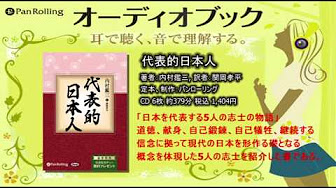
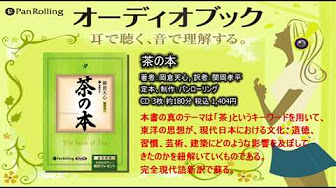
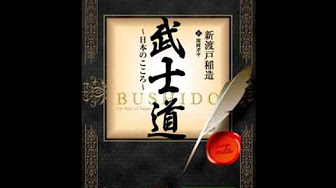


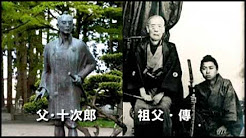
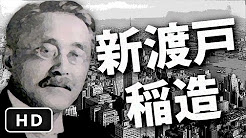
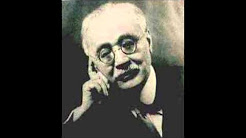



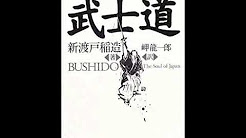
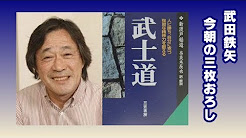
・新渡戸稲造
第1弾「世界を結ぶ『志』~新渡戸稲造の生涯~」、
第2弾「未来につながる『道』~新渡戸稲造の武士道~」、
第3弾「すべてに根ざす『愛』~新渡戸稲造の苦悩~」、
・ 新渡戸稲造の至極の名言集
・「新渡戸稲造の名言」20話
| |
・Bushido: The Soul of Japan by Inazo Nito(1-18)
・Bushido: The Soul of Japan by Inazo Nitobe(1-18)
・武士道「BUSHIDO」Japanese Ver.
・≪AI朗読≫武士道
・【武田鉄矢】『武士道』完全版
|
Bushido, the Soul of Japan
『武士道は定式化されたものではないが、昔もそして今も、日本人を鼓舞し、わが国を動かす原動力なのである』
日本人が日本人たりえる所以。
国家としての歴史的哲学体系を持たない日本の、現代社会においても尚、我々の血肉となり、在り続ける道徳律の根幹は「武士道」にあり。
日本人 新渡戸稲造博士が世界に発信した日本人論。
世代と国境を越え今なお読み継がれている世界的ベストセラー。
西洋・東洋の文化・哲学・思想と照らし合わせながら、その特異性と唯一無二の行動規範・心の拠り所を詳細に解説した普遍の書が、完全現代語訳、プロフェッショナルのナレーションで今蘇る。
21世紀。世界第三位の経済大国であるわが国日本。
政治的にも文化的にもより身近に世界と対峙する現代においてこそ、われわれの心の中に脈々と流れ続ける、日本人が日本人足らしめる「武士道」の精神を紐解く時なのではないだろうか。
本書は1世紀の時を超えた今も尚色褪せること無く、むしろその博識と見解、交える事例とそのユーモアに溢れた表現により現代人の我々にも実に痛快に日本の心「武士道」を理解させてくれる。
「武士道」がいつどのようにして始まったのか、それはどんな特徴を持ち、どのようなことを教えようとしているのか、武士以外の一般民衆にどのような影響を与えたのか、その影響がどれほど永く続いているか。
様々な角度・キーワードで武士の心得、さむらいの心の在り方をリレー形式で綴っている。
世界有数の犯罪率の低さ、大災害時での規律、自発的な他助の精神と行動は時代を超えて、親から子へと語り継がれてきた「道徳律」が存在し続けていることを如実に表している。
知っているようで知らない「日本の心」が、ここに明かされている。
内容抜粋
「今何とおっしゃいましたか?」と敬愛する教授は尋ねた。
「日本の学校には宗教の教育がないということでしょうか?」
そうですと答えると、教授は驚いて足を止めた。そして、今でも耳から離れない声音で、重ねてこう聞いた。
「宗教がない! だとしたら、いったいどうやって道徳を教えるんですか?」
この質問に私は意表を突かれ、とっさに答えを返すことができなかった。というのも、子どもの頃私が学んだ道徳というのは、学校で教わったものではなかったからである。私は、自分の持っている善悪正邪の概念を作り上げているさまざまな要素をひとつひとつ分析してみて、ようやく、それらを私の中に植えつけたのは「武士道」であったことに気づいた。
武士道とは、武士が守るよう求められる、もしくは、そう教えられる道徳的な作法である。文字に書かれたものはなく、せいぜい口伝えで伝えられた格言や、有名な武士や学者が書いたものが残されている程度である。
多くの場合そうしたものさえなく、しかしだからこそかえって深く心に刻まれ、守るべき掟<<おきて>>として強い拘束力を持っていた。ひとりの優秀な頭脳が考え出したものでもなければ、ひとりの高名な人物の生きかたが手本となってできたものでもない。数十年、数百年に及ぶ武士の歴史の中で自然に醸成されたものである。
「義は、道理に従ってためらうことなく、何をなすべきかを決断する力である。死ぬべきときは死を選び、討つべきときには討つことを選ぶ力である」
「戦いの真っただ中に飛び込んで討ち死にするのはいともたやすいことで、身分の卑しい者にもできる。生きるべきときは生き、死ぬべきときにのみ死ぬのが本当の勇気である」
「義に過ぎれば固くなる。仁に過ぎれば弱くなる」
「礼法の要点は精神を養うことにある。礼をもって静かに座っていれば、どんな乱暴者でも危害を加える気になれないほどに」
仁愛や謙譲の精神から生まれた礼儀は、他人に対する思いやりから生まれて、人への同情心を品よく優雅に表現するものだからである。
「心だに誠の道にかないなば祈らずとても神や守らん」
「忠ならんと欲すれば孝ならず、孝ならんと欲すれば忠ならず」
命は主君に仕えるための手段だと考えらえており、その理想形は、名誉のために命を捨てることであった。
「おのれの魂という畑が、優しい心で揺れ動くのを感ずるか? まかれた種が芽吹こうとしているのだ。言葉でそれを妨げてはならぬ。静かに、ひそやかに、自ら芽吹くのを見守っているのだ」
「死を軽<<かろ>>んずることは勇気のいる行為である。しかし、生きることが死よりもつらいときに、あえて生きることこそが本物の勇気である」
「かくすればかくなるものと知りながら やむにやまれぬ大和魂」
目次
訳者序文
初版への序文
改訂第10版への序文
新渡戸博士の『武士道』に寄せて
第1章 道徳体系としての「武士道」
第2章 武士道の源
第3章 「義」――あるいは正義について
第4章 「勇」――勇敢さと忍耐力
第5章 「仁」――慈愛の心
第6章 「礼」
第7章 「誠」――正直さと誠実さ
第8章 「誉<<ほまれ>>」――あるいは名誉について
第9章 「忠義」
第10章 武士の教育と鍛錬
第11章 自制心
第12章 切腹と敵討ちという制度
第13章 刀――武士の魂
第14章 女性の教育と地位
第15章 武士道から大和魂へ
第16章 武士道は今も生きているか
第17章 武士道のこれから
新渡戸稲造(Inazo Nitobe)
文久2年(1862年)、藩士 新渡戸十次郎の三男として南部藩(今の岩手県)に生まれる。
幼少期より東京英語学校に学び、少年期は、後に「代表的日本人」の著者でもある内村鑑三らとともに札幌農学校へ入学し学業を磨いた。
明治維新後はアメリカ・ドイツに渡り農政学を始め様々な研究に従事。
台湾総督府技師として台湾の殖産に携わり功績を挙げる。
国際連盟事務次長としても国際的に活躍。帰国後は様々な学校の教職を歴任した後、東京女子大学初代学長にもなる。
本書「武士道」は英語のみならずポーランド、ドイツ、ノルウェー、スペイン、ロシア、イタリアなど、主として欧米の多様な国の言語に翻訳され世界的ベストセラーとなる。旧五千円札の肖像画の人物としても有名。
TOP

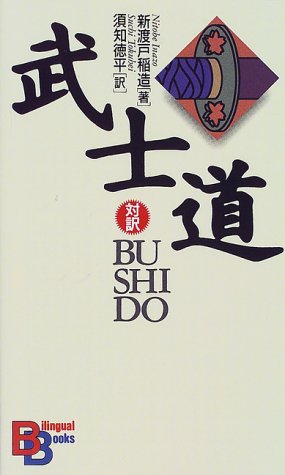
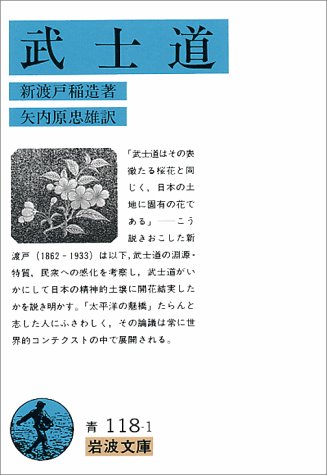
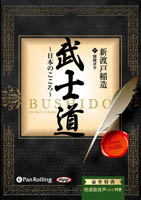 朗読,Read 朗読,Read
|
















 朗読,Read
朗読,Read
















 朗読,Read
朗読,Read